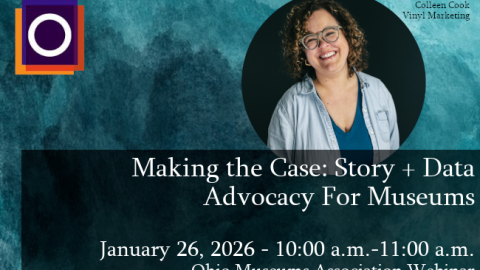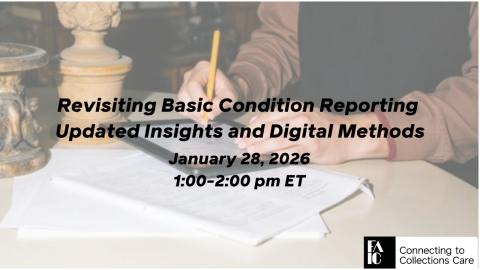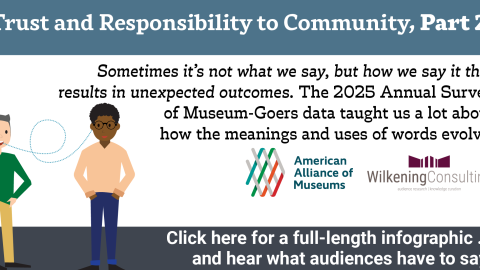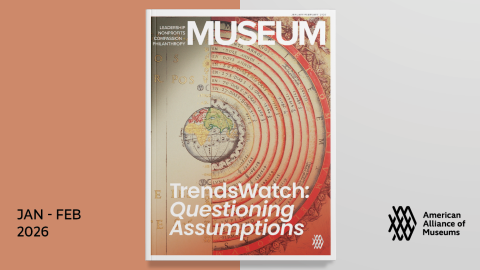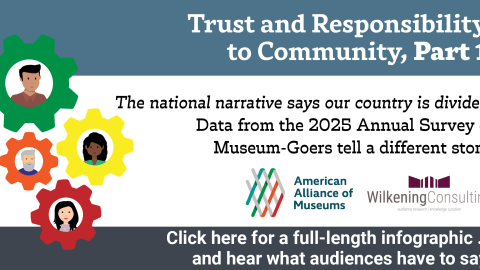May 15, 2025
In this Alliance Advocacy Alert:
- IMLS Lawsuit Updates
- Take Action: Federal Funding
- Congressional Museum Caucus
- AAM Advocacy Webinar and Invite Congress
- Tax Policy Legislation
- Advocacy Tip of the Month: Do Your Homework!
IMLS Lawsuit Updates
On May 13, the Judge in the 21 states’ attorneys general case issued a ruling to halt the dismantling of IMLS and ordered the agency to revert back to pre-executive order status including restoring staff and contractors and resuming “the processing, disbursement, and payment of already-awarded funding.” The Administration has seven days to submit a status report to the Court. It is unclear how the Administration will implement the Judge’s order and we expect the government will likely appeal the decision. AAM will continue to follow these developments closely.
Take Action: Federal Funding
Federal Funding: Congress is in the beginning stages of the process to fund the government for Fiscal Year 2026 (FY26), known as appropriations. It is very important that Congress continues to provide funding for IMLS. One of the key arguments in the lawsuits is that the President cannot make these funding cuts without Congressional approval. Because of this, it’s critical that Congress continues to fund these agencies.
Letters are currently circulating in both the House and Senate for members of Congress to sign onto supporting funding for IMLS for FY26. The letter is being led in the Senate by Sen. Kirsten Gillibrand (D-NY) and in the House by Rep. Paul Tonko (D-NY), Brian Fitzpatrick (R-PA), Chellie Pingree (D-ME), and Mike Turner (R-OH). The deadline for members of Congress to sign onto the IMLS support letters is May 21.
Note: The deadlines for the support letters for NEA and NEH have passed but if you would still like to contact your member of Congress about funding for those agencies you can use this letter as a template and customize it.
News: Mary Anne Carter has been nominated to return as NEA Chairperson. She currently serves as Senior Advisor.
Congressional Museum Caucus
As mentioned in previous alerts, there is a newly formed Congressional Museum Caucus, co-chaired by Rep. Paul Tonko (D-NY) and Rep. Mike Turner (R-OH). AAM advocated for the creation of the caucus. Encourage your House member to show their support for museums and join the bipartisan Congressional Museum Caucus.
AAM Advocacy Webinar and Invite Congress
Webinar: AAM is hosting a free webinar on May 29 at 2pm ET on In-District Advocacy: Advocating to State and Federal Lawmakers. State and federal lawmakers periodically visit their home districts throughout the year to connect with and hear from their constituents. Learn about engaging with your state and federal representatives when they are in their home districts, preparing for your advocacy, and making the most out of your advocacy efforts.
Invite Congress: During the week of August 11-15, 2025, have one of your members of Congress visit your museum, either to tour your museum, attend an event, observe one of your programs in action or just to meet with you and your staff. If your members of Congress are not available to visit your museum that week, give them the option of visiting during another time in August. Members of Congress are in their home districts for the entire month of August visiting and touring local businesses, attending events and programs, and meeting with constituents. Make sure museums are on their August agenda. Get your invitations in now. Their schedules fill up quickly.
Tax Policy Legislation
This week, the House Ways and Means Committee approved by party-line vote a sweeping tax package. As for good news, the bill would reinstate a modest non-itemizer deduction for tax years 2025-2028 at $150 for single taxpayers and $300 for married (Section 110112). While this is a step in the right direction, this provision is not as strong as those in the Charitable Act (S. 317/H.R. 801), one of AAM’s top legislative priorities.
On the other hand, the Committee-passed bill also contains several troubling provisions for nonprofit charitable organizations, including museums. If enacted as is, the bill would:
- Expand excise tax on investment income of university endowments, which could impact resources for college and university museums and galleries (Section 112021)
- Increase in foundation excise tax thus reducing availability of grant funds (Section 112022)
- Change Unrelated Business Income Tax (UBIT) provisions:
- Include transportation/parking fringe benefits subject to UBIT with exception for churches (Section 112024)
- Make name and logo royalities subject to UBIT (Section 112025)
- Cap itemized deductions, including for charitable contributions, at 35% for taxpayers in the 37% bracket. (Section 110011)
- Add a 1% floor for corporate charitable donations (Section 112028)
- Add H.R. 9495 “anti-terrorism” language with minor adjustments from previous Congress (Section 112209)
- See Independent Sector and Council on Foundations joint statement
Although subject to contentious negotiations, the bill could be considered by the full House before Memorial Day. The Senate currently is working on its own version of a tax package, details have not yet been released. Eventually, the House and Senate will need to come to an agreement to rectify the differences in the two versions. AAM is working with our coalition partners in the Charitable Giving Coalition, Independent Sector, National Council of Nonprofits, and the Community Impact Coalition to protect and advance the interests of museums and preserve and expand the charitable deduction. We are continuing to analyze the bill, and we remind readers that substantial changes are inevitable as the legislative process continues.
Advocacy Tip of the Month: Do Your Homework!
The more you know about your lawmakers, the better chance you have of formulating an argument that will get the lawmaker’s attention. Don’t think of them as their political party, instead think of them as an individual. Read their websites, press releases, newsletters, social media, bios, and issue positions to determine what motivates their decisions, what are their priorities, what are their key interests, do they have a position on your issue, and why do they support or oppose your issue? Look up your elected representatives and find their websites by typing in your address here.

